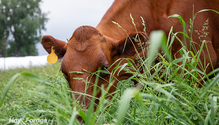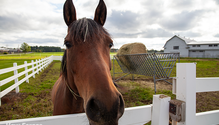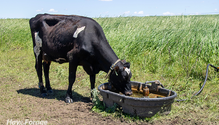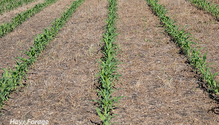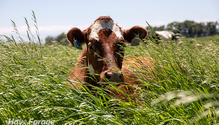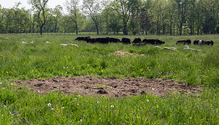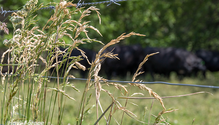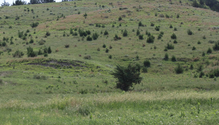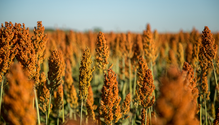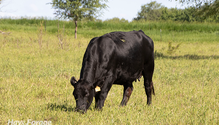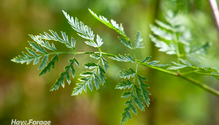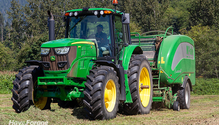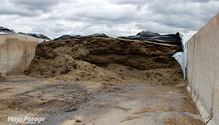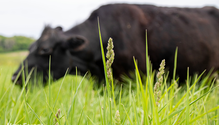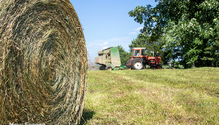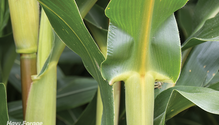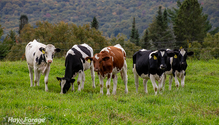Close
Over time, what once was a monoculture of perennial grass may turn into a mixed stand of grasses, legumes, and even some unwanted species. But just because a pasture isn’t what it used to be doesn�
Waiting days for a good-quality hay crop to dry and then have it rained on just as it was getting close to baling moisture can be demoralizing. It’s like losing a baseball game with two outs in the
Horse hay has its own set of standards that are exclusive to equine. Many of these standards fall under the physical attributes of the bale, followed by the nutritive qualities of the forage, but clea
Natural water sources in pastures are only as valuable to a grazing system as the quality of water they contain. In other words, the health and performance of livestock will suffer if animals are subj
Grazing fall corn stalks is a common practice throughout the Midwest and Great Plains. But what if we could improve that brown crop residue with green and growing forage? Interseeding annual fora
It’s that time of year when grass paints the landscape in green and grows like it’s on a designer steroid. As temperatures warm, cool-season grasses are well rested and ready to take advantage
Like any grazing practice, the merits of bale grazing will vary with each individual farm. These merits can be in the form of more grazing days, lower feed costs, and less equipment use, which can tra
“Three findings highlight fescue’s history” detailed the early events that contributed to tall fescue’s infamous reputation as a toxic forage. Although these events paved the path
Photo: University of NebraskaRangeland pastures are difficult enough to keep productive throughout the growing season without the encroachment of woody species. The problem, according to Bethany Johns
Wildfires throw a wrench into grazing plans in regions prone to such disasters. Even though pasture and rangeland fires delay forage regrowth and set back grazing schedules, perennial grasses typicall
Aphids are a bane in alfalfa fields, especially considering the rapid rate of reproduction and range of toxicity among the species. Damage from aphids feeding on plant sap as well as their injection o
As part of annual crop rotation systems, sorghum-sudangrass has become more widely used by dairy and beef producers who are looking for moderate to good-quality forage with good yield potential when managed
Managing the spring flush of forage growth often involves flirting with the fine line between grazing too early and being swallowed by the surplus. As cool-season grasses start to green up, it may be
The philosopher Socrates was sentenced to death in 399 B.C. for not believing in the popular Greek gods of his time and place. Without the option of an electric chair or firearm, the philosopher’s
Custom rate guides are welcomed resources in those states that continue to do the survey legwork; unfortunately, many do not. Each year, eHay Weekly offers readers a one-stop shop for accessing custom
If spring green up isn’t sign enough, an echo ringing off the wall of an empty bunker silo should indicate another forage harvest season is fast approaching
Nitrogen fertilization may be furthest thing from a one-size-fits-all situation. The nutrient required for plant growth and protein synthesis is a critical factor of forage production, but its m
Although forage quality can be objectively defined by the results of a hay test, it sometimes takes on a more subjective connotation influenced by farmer standards for hay appearance, texture, or even
Brown midrib (BMR) corn has been a staple feed on many dairy farms since the mid-1990s. These hybrids generally have a lower lignin content and higher fiber digestibility. Nutritional studies have hel
Raising replacement heifers can be costly for a dairy farm, with feed costs for these animals typically comprising the biggest chunk of that expense. One solution is to let heifers harvest forage them
..
Visit our partner publications:
Hoard's Dairyman | Journal of Nutrient Management
